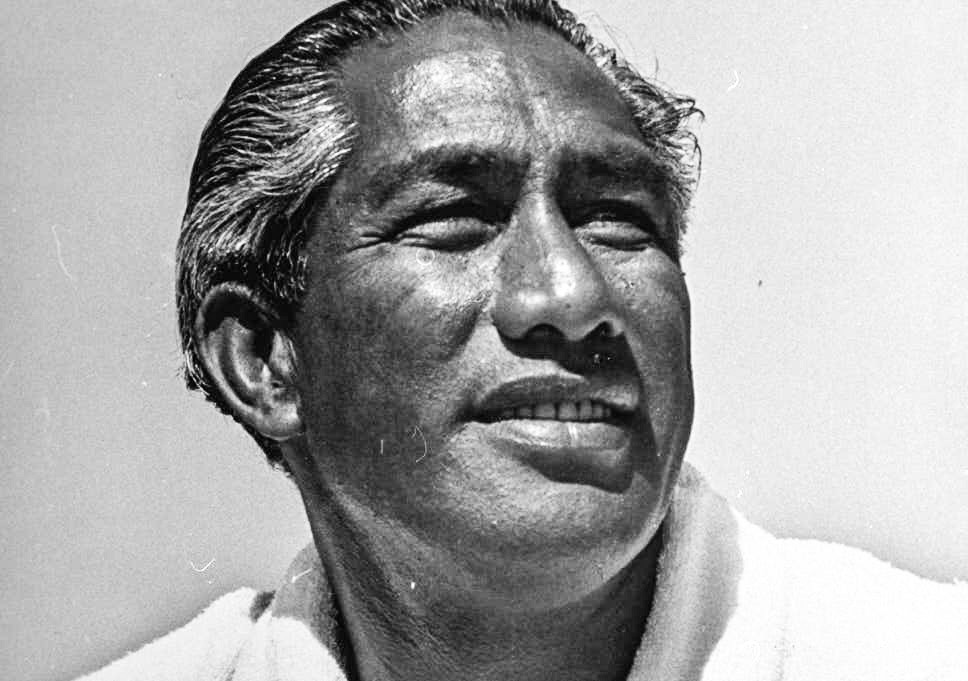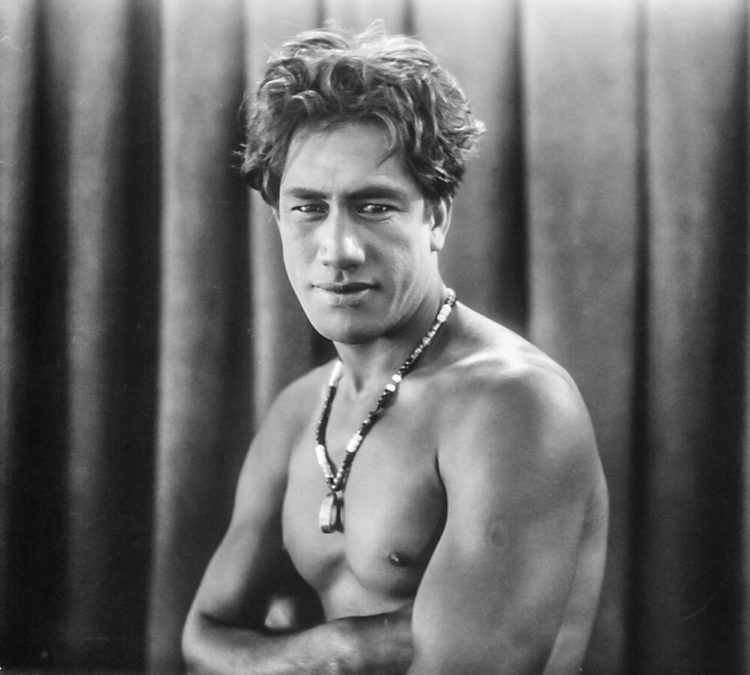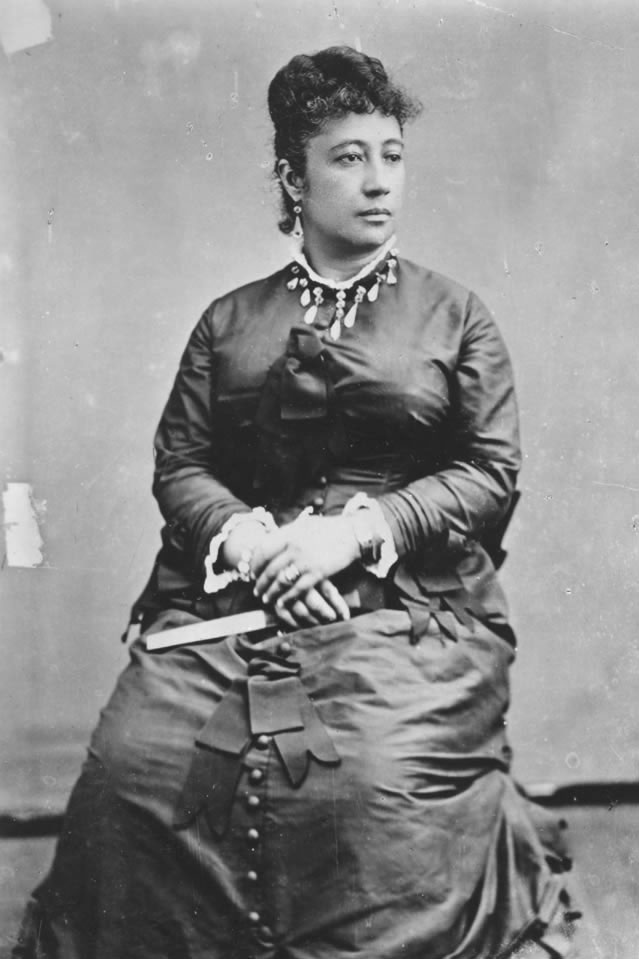Duke Kahanamoku was more than just the first native Hawaiian to bring he’enalu (surfing) to the United States mainland — he was the first native Hawaiian to swim competitively at an international level and will forever be Hawaii’s first Ambassador of Aloha. This month we’re shedding light on another Hawaiian Hero.
Duke Paoa Kahinu Mokoe Hulikohola Kahanamoku was born on August 24, 1890 at the home of Bernice Pauahi Bishop in Honolulu. His parents, Duke Halapu Kahanamoku and Julia Pa’akonia Paoa, were lower-level nobles whose duty was to serve the monarchy. His family moved to Kālia, Waikiki three years after he was born to be closer to extended family. Duke ended up being raised alongside his three sisters, five brothers and thirty-one Paoa cousins with the Pacific Ocean as their backyard. Little Duke attended Waikiki Grammar, Kaahumanu and Kamehameha schools before dropping out of school early to help financially support his family.
Duke’s obsession with the ocean began at a very early age. As a young child, he would swim in search of silver coins through shark-infested waters at the Honolulu Harbor. He also devoted a lot of time to Waikiki beach perfecting his swim strokes and surfing skills. His swimming abilities continued to blossom, and at the raw age of twenty-two Duke earned a spot on his first American Olympic Swimming team. He would be the first-ever native Hawaiian to compete at such a level. Duke won his first gold medal in the 100-meter freestyle and a first silver medal with the 4×200-meter U.S. men’s freestyle relay team in the 1912 Summer Olympics in Stockholm. He also won gold medals in the 1920 Antwerp Olympics and silver medals in the 1924 Paris Olympics (alongside fellow Hawaiians Pua Kealoha and Samuel Kahanamoku).
Mainland sportswriters quickly took notice of Kahanamoku’s athletic abilities and noticeably positive demeanor, and nicknamed him “The Duke.” He decided that he would then use his athletic notoriety to bring Hawaii and its aloha-based culture into the national spotlight. Duke is best remembered for introducing the ancient Hawaiian art of surfing — a sport unheard of outside of the islands — to the United States mainland. While Duke was a swimming champion, his true passion was always surfing.
He would provide surfing demonstrations on his 16-foot koa wood, finless surfboard to both the east and west coast of the United States with the hopes of bringing popularity to the activity. In his autobiography, Duke says that surfing “leaves you rewarded with a feeling of freedom and independence while rocketing across the face of a wave.” While Duke Kahanamoku never reached his goal of making surfing an Olympic event in his lifetime, he did popularize the sport enough to have it become an important and regular part of everyday American life. Films like “Beach Blanket Bingo”, “Gidget” and musics groups like The Beach Boys were all made possible because of Duke’s cultural contribution.

While Duke was never dominated by fortune or fame, he was a natural born businessman and lent his name for a generous profit to Hawaiian and American surfing teams, gear and competition. King Kamehameha, the native Hawaiian king responsible for uniting all eight Hawaiian Islands, prophesied that “before the native Hawaiian race died out, one man would bring it fame”. Most natives believe that Duke Kahanamoku fulfilled that prophecy. Since his passing in 1968, Duke was named Surfer of the Century by Surfer Magazine.
Throughout his life Duke Kahanamoku was beloved for his sportsmanship, humble attitude, positivity and amazing skill in the water. Next year in the 2020 Tokyo Olympics, surfing will make its debut as an olympic sport. We can’t help but feel emotional knowing that one native Hawaiian’s seemingly tiny cultural contribution will soon be recognized by the entire world. Today Duke Kahanamoku remains a legendary waterman, remembered by all, and an inspiration to live life with aloha.
Here at Hanauma Bay Snorkel we strive to live and share aloha, like Duke, every day. We hope that our snorkeling tours bring you memories to last a life time and leave you feeling #luckytovisithawaii.
Princess Bernice Pauahi Bishop was a strong, intelligent, benevolent, Hawaiian woman who performed her kuleana (responsibility) as royalty to perpetuate her culture and serve her people.
On December 19, 1831 Pauahi Pakī was born in Honolulu to parents Abner Pakī and Laura Konia Pakī. Pauahi was the great-granddaughter of Kamehameha The Great, the ruler who united all of the Hawaiian Islands in 1810. Pauahi grew up with strong Hawaiian values, and a western and Hawaiian education. She thrived in school and was gifted in many ways. She was known for her generosity and kindness.
At 18 years old Pauahi married Charles Reed Bishop. Bishop was an American businessman who made Hawaii his home. He became a pillar in the Hawaiian government, known for his success as a businessman, banker and philanthropist.
Pauahi and Charles shared a love for travel, museums and art. They did not have any children of their own and made it a point to look out for the native Hawaiian youth. As the last royal of the Kamehameha bloodline, Bernice Pauahi inherited nine percent of Hawaii’s total acreage making her the largest landowner in the Hawaiian Kingdom.
At the time of Pauahi’s birth the Native Hawaiian population lived near 124,000. In 1883, a year before her death, the population had dropped nearly 80,000. Pauahi lived through the rapid decline of population, and with the drop in people came the loss of Hawaiian tradition, culture and language. As a learned woman herself, Pauahi believed that her people would benefit from education. She left her entire land inheritance to found Kamehameha Schools.
After her death in 1884, Charles Reed ensured that his wife’s wish was fulfilled. Along with some of his own funds generously donated, Charles oversaw the construction of Kamehameha’s facilities. Both Pauahi and Charles were sure to guide their trustees in the direction that would uphold Pauahi’s vision to perpetuate her culture and build a future for her people.
As of June 2014, Pauahi Bishop’s estate and other assets are valued at about eleven billion dollars. Pauahi’s contribution now supports Kamehameha Schools, a statewide system providing education to more than 48,000 students a year.
Known for her giving nature and sweet spirit, Pauahi ensured that countless generations of native Hawaiians would have the opportunity to share in her love of education. We’re so grateful to live in a paradise full of that same aloha, we truly are #blessedwelivehawaii.


